Thriller movies elicit mistrust, and the thrillers of the 2010s were some of the best ever to twist and distort audience expectations. The subject of suspicion is the source of experimentation for directors as they make thriller movies that mess with the head. Sometimes, the source of mistrust is simply the lack of certainty about a character’s survival, but often, it goes deeper than that, especially with the unreliable narrator who introduces a mistrust in the film itself. A thriller has succeeded when its audience doesn’t know what to expect next and whose perspective to rely on as they try to figure out what’s going on.
Every decade of cinema is chock-full of unique thrillers. In hindsight, the 1980s had many overlooked thrillers, like every era. The thrillers made in a certain period of time can often reflect the collective anxieties of people in that time. But whatever the themes they explore, the common characteristic of the best thriller movies is that they put viewers in an expectant state, where they’re anxiously waiting for a resolution that will resolve the suspense and ease their nerves. Still, the 2010s was a unique time for the genre.
10 The Killing of a Sacred Deer (2017)
Directed by Yorgos Lanthimos
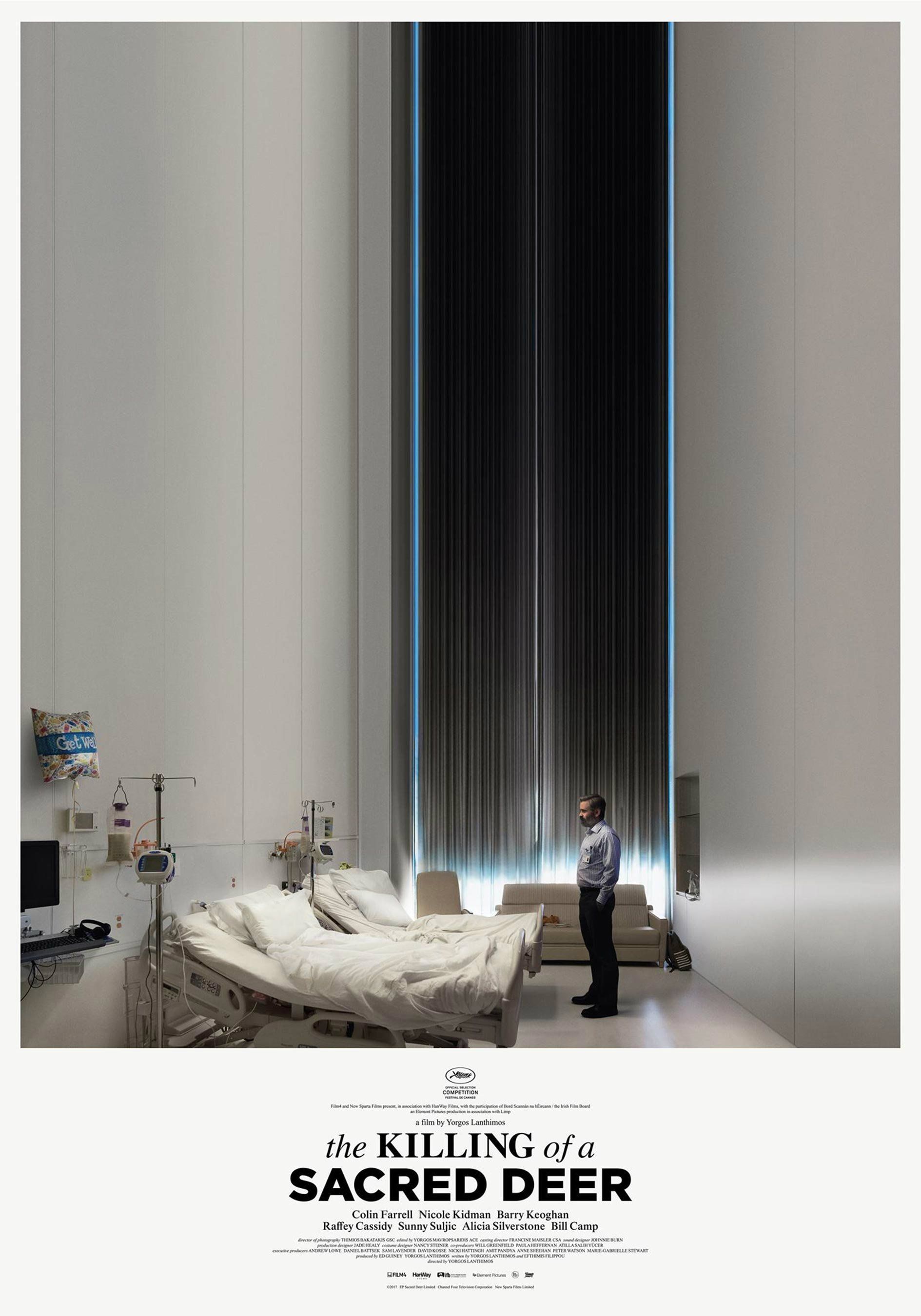
The Killing of a Sacred Deer is a horror-thriller film that follows a cardiovascular surgeon named Dr. Stephen Murphy and his family living a seemingly perfect life. When Dr. Murphy happens upon a teen named Martin, he seeks to help him by acting as a mentor. However, Martin harbors sinister intentions and knows a secret truth about Dr. Murphy that threatens to upend the meticulously crafted life he lives.
- Director
- Yorgos Lanthimos
- Release Date
- October 27, 2017
- Writers
- Efthymis Filippou , Yorgos Lanthimos
- Runtime
- 121minutes
One of the best supernatural crime thrillers of all time, The Killing of a Sacred Deer is a tale of vengeance. Metaphorically alluding in the title to the Greek tragedy of Iphigenia, whose life had to be sacrificed to Artemis because her father Agamemnon had killed one of her sacred deer, the story recontextualizes the myth. A neurosurgeon’s carelessness costs a patient his life, and within days, his family falls ill. The dead patient’s son explains that the doctor must kill one of the three members of his family or all of them will die of the incurable ailment.
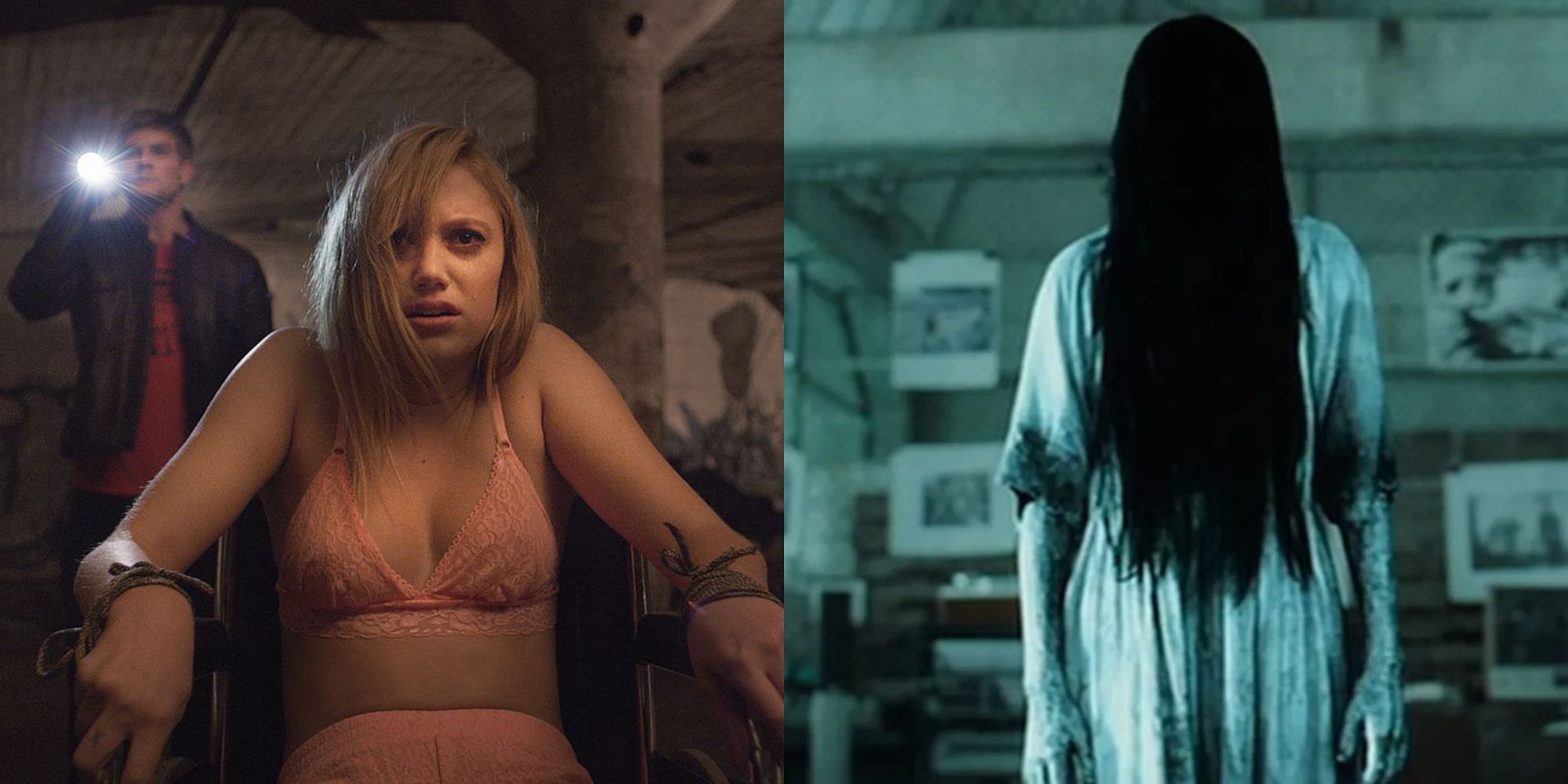
Related
10 Scariest Curses In Horror Movies (And Why)
From doomed objects to relentless creatures that never stop chasing you, these curses stay with the victims even after it’s gone
The impossibility of making such a choice creates the perfect disturbing premise for a thriller. Despite the son making it very clear that there’s no way out of the situation, the doctor, and the viewers with him, keep racking their brains for ways to circumvent the circumstances. However, the feeling of doom only grows with time, and the indifference of the world around the family faced with such tragedy only makes the film more uncomfortable. It can be a bit of a slow burn at times with some scenes dragging too long, but the psychological thrill makes up for it.
9 Andhadhun (2018)
Directed by Sriram Raghavan
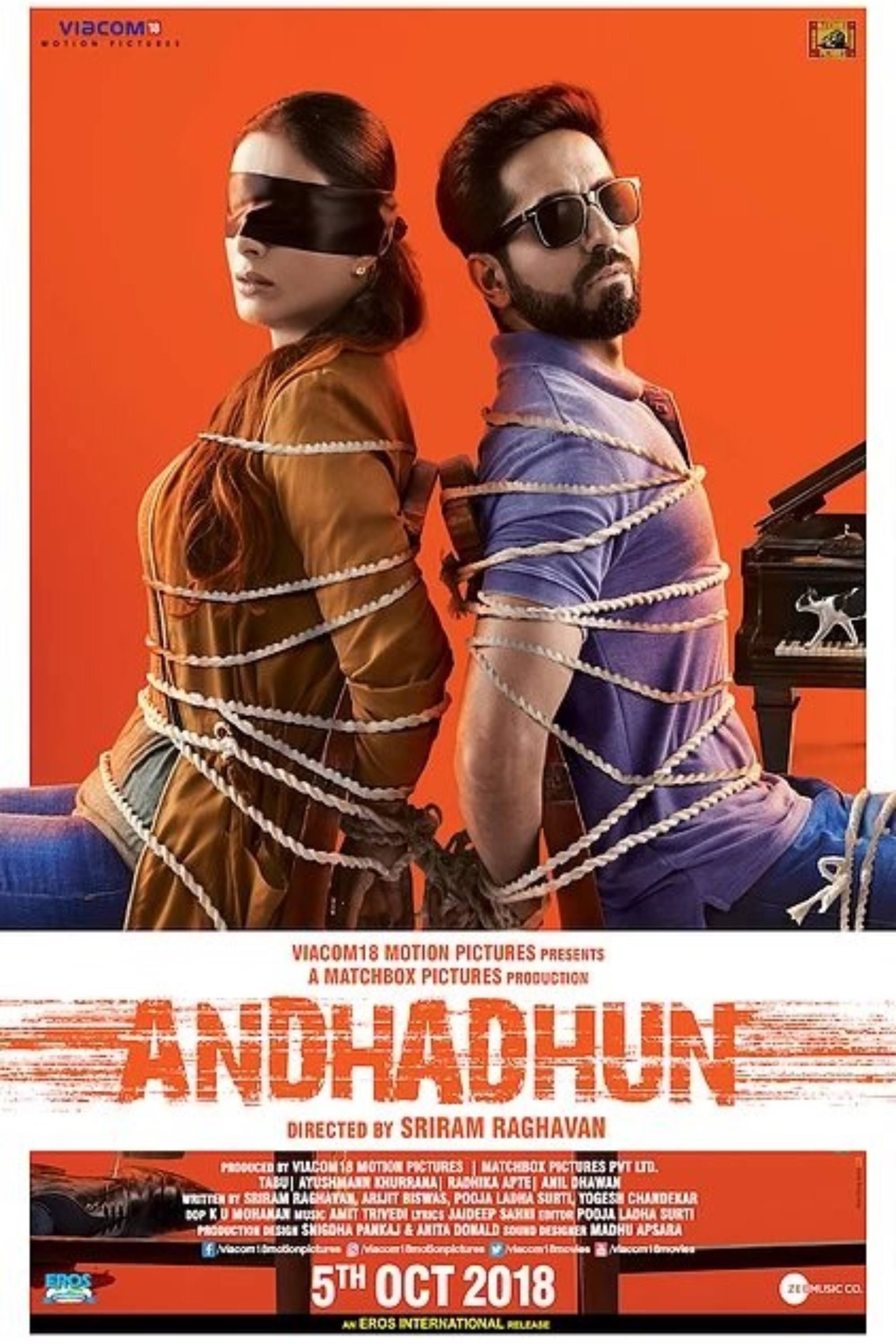
Andhadhun is a Hindi-language thriller directed by Sriram Raghavan, featuring Ayushmann Khurrana as a visually impaired pianist who becomes embroiled in a series of mysterious events after witnessing a crime. The film also stars Tabu and Radhika Apte, blending suspense and dark comedy. The narrative structure and character arcs propel the story through unexpected twists, making it a critically acclaimed entry in Indian cinema.
- Director
- Sriram Raghavan
- Release Date
- October 5, 2018
- Writers
- Arijit Biswas , Yogesh Chandekar , Sriram Raghavan , Hemanth M. Rao , Pooja Ladha Surti , Olivier Treiner
- Cast
- Ayushmann Khurrana , Tabu , Radhika Apte , Anil Dhawan , Manav Vij , Zakir Hussain , Ashwini Kalsekar , Chhaya Kadam
- Runtime
- 139 Minutes
Andhadhun‘s twist is absolutely unpredictable. While the film plays on people’s expectations by reserving the game-changing perspective for the climax, the main twist is revealed halfway through. Even after the film is over, the viewer is left with a mistrust because the protagonist whose point-of-view is used for the entire first act hid something fundamental to his role in his telling.
He isn’t just playing the lie, he’s playing someone who knows the truth and is trying to sell the lie while living the truth.
Ayushmann Khurrana’s performance sells the lie beyond a shadow of a doubt. And yet, on a rewatch, it’s clear that he’s aware of the deception, as there are clear hints that foreshadow the reveal. He isn’t just playing the lie, he’s playing someone who knows the truth and is trying to sell the lie while living the truth. The twists in the storyline itself are also compelling, but maybe Andhadhun could have been tighter in the middle because, after the big reveal at the end of the first act, it takes quite some time to pick up the pace.
8 Uncut Gems (2019)
Directed by Benny and Josh Safdie
Featuring one of the wildest opening title sequences of all time, Uncut Gems is a test of stress resistance. It never slows down. Comical in a dry manner, unlike most of Adam Sandler’s work which is slapstick, the film takes a depressing look at a day in the life of a jewelry salesman whose various business dealings all start falling through one by one on the same day.
Uncut Gems is a bleak exploration of commodification, not just of objects, but people and their time. Everyone’s always moving and in a rush, and even a handheld camera that follows the action up close fails to keep up with all of it. The rush adds to the anticipation about the uncertainties in the protagonist’s life as multiple sources of threat start cornering him on his way to the climax. Uncut Gems‘ ending itself is beloved by many, but might feel anticlimactic too. Thematically, it’s the perfect conclusion, though.
7 Burning (2018)
Directed by Lee Chang-dong
A loose adaptation of a Haruki Murakami short story, Burning is, pun intended, a slow burn. The source of thrill isn’t even in the picture until the second half of the film, and even then, Burning meanders around, embellishing the narrative with further details to make the world feel as lived-in as possible. The seemingly random details that are thrown into the mix, are all subtly used to resolve the tension in the final scene because the film employs visual storytelling instead of spelling out every reveal. Also, Burning features one of Steven Yeun’s best roles.
Lee Chang-dong had been on an almost decade-long hiatus from filmmaking until the release of
Burning
, which competed for the Palme d’Or and won the international critics’ prize at Cannes Film Festival, 2018.
Poetically musing on the self-destructive nature of a one-sided fascination, Burning is a symbolic stroll through the charred remains of a greenhouse full of half-realized hints about an inexplicable situation that only leads to another fire. The final fifteen minutes bring together the significance of some seemingly disparate moments in the protagonist’s regular life. The slow burn pays off because every loose end gets tied up, but more importantly, a hint of uncertainty is never resolved, and in a traditional thriller structure, that’d have made it seem anticlimactic. It’s a character study in the guise of a dramatic thriller.
6 Gone Girl (2014)
Directed by David Fincher
Celebrated as a feminist cult classic for the famous “Cool Girl” monologue, Gone Girl is the quintessential crime thriller. Adapted quite faithfully from Gillian Flynn’s novel of the same name, the film is a masterpiece in patient filmmaking. It takes its own sweet time getting to the plot twists, each of which further fleshes out the female protagonist. The composed pacing, where time is spent with characters to study their reactions and understand their motivations, develops suspense as the sense of impending doom is never lifted.
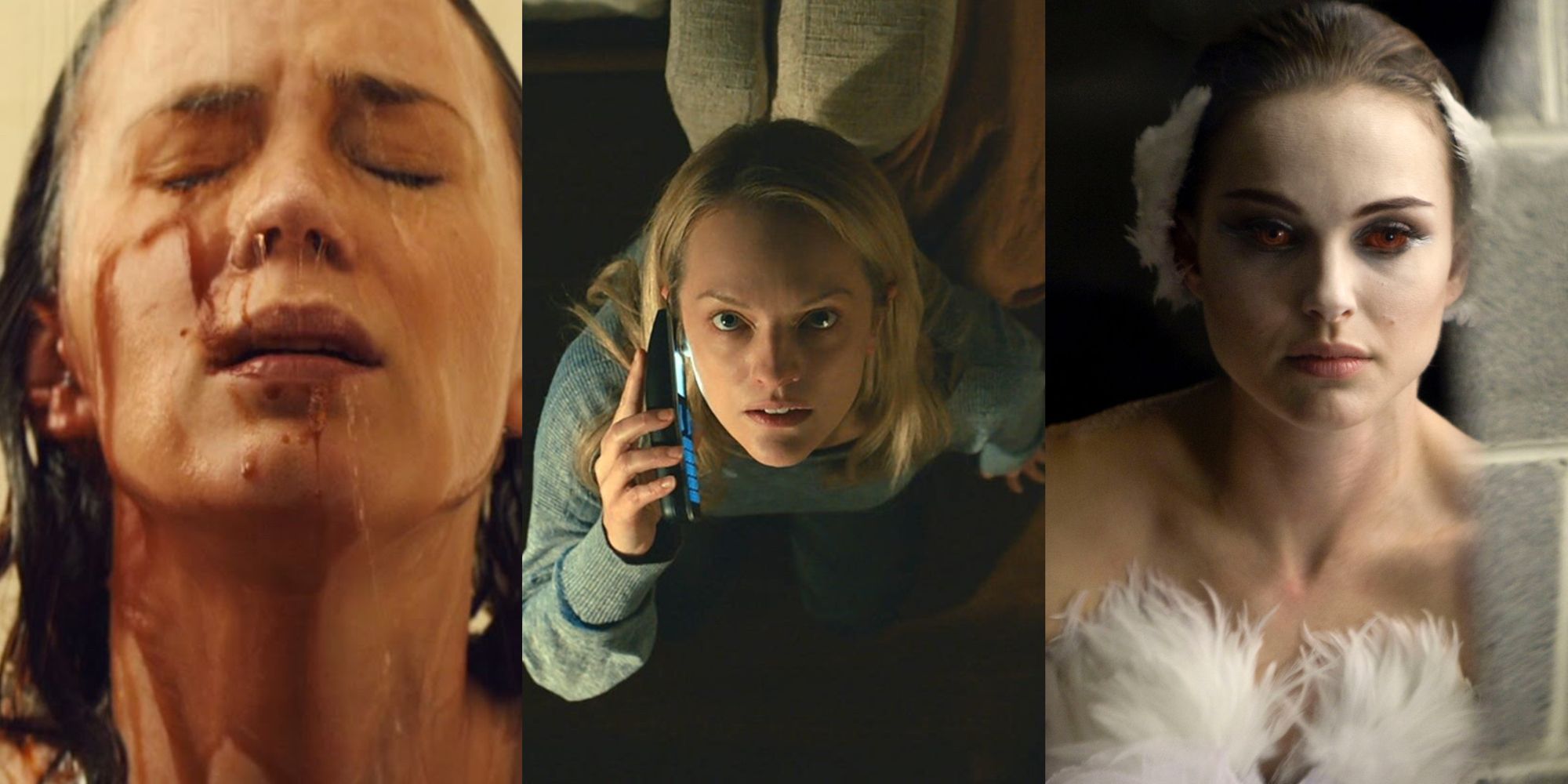
Related
10 Mind-Bending Thrillers With A Badass Female Lead
Florence Pugh’s performance in Don’t Worry Darling left audiences speechless, but from 10 Cloverfield Lane to Black Swan these female leads stood out.
Structurally, Gone Girl breaks as many storytelling conventions as it follows. It gets off to a slow start, and gradually picks up speed until the third act, which culminates in an uncomfortable resolution. It also features dramatic revelations at regular intervals that keep viewers on the fence regarding who’s in the right. But, its source of anxiety is not in the anticipation of a confrontation. The anxiety lies in following a chaotic protagonist who’s simultaneously calculated and random. Plus, it uses non-linearity, so that the timeline in Gone Girl divides it into a crime thriller and a dramatic tragedy.
5 Shutter Island (2010)
Directed by Martin Scorsese
Shutter Island features one of Leonardo DiCaprio’s best performances in the role of a war veteran investigating a disappearance in a psychiatric hospital. He’s certain one of the patients is responsible for the murder of the missing patient and refuses to back down from pursuing his hunch, sometimes risking his life in search of clues. The color palette of the film reflects the darkness in the protagonist’s mind who’s absorbing the surrounding depravity as he descends into hysteria in pursuit of answers. Viewers follow the descent as they have no clue what Shutter Island is really about until the end.
Viewers are inside the protagonist’s mind and navigating caves and dark corridors, each of which seem to hide the truth.
The psychiatric hospital is on an island, and Scorsese’s exploration of the setting seems to mimic walking through a labyrinth as if viewers are inside the protagonist’s mind and navigating caves and dark corridors, each of which seems to hide the truth. The visual storytelling adds gravitas to the thrill as the lack of certainty about the protagonist’s ultimate fate is complemented by the gradually increasing inaccessibility of spaces he attempts to enter in search of clues. The best part? The final reveal changes everything, and on a rewatch, one can only spot foreshadowing of the narrator’s unreliability.
4 Wild Tales (2014)
Directed by Damián Szifron
The most compelling thrillers often don’t take time to build to a conclusion. They speedrun their way from premise to explosive confrontation, dragging viewers along on the rage-fueled adventure that doesn’t care for conventions or suspense. An anthology of six shorts, Wild Tales is a compilation of such thrillers. A couple of them aren’t as compelling as the rest, mostly because they pay too much attention to minute details to, within time, provide a payoff for the anxiety they induce. However, the better ones are so good that no one will complain about the weaker links.
From road rage and frustration with the government to infidelity revealed at a wedding, each short has a compelling premise, and the best ones take no time to let things escalate. The rapid cuts in most of the sequences, especially the ones involving cars, accentuate the anxiety-inducing nature of the chaos surrounding the central premise. It’s different enough to not be a remake, but Wild Tales bears striking similarities to Amores Perros at times, especially the balance of comedy and angst. However, not connecting them perhaps serves the chaos of the individual stories even more in WIld Tales.
3 Prisoners (2013)
Diected by Denis Villeneuve
Prisoners is a fast-paced slow burn, where the reveals are comfortably spaced out, but the protagonist’s descent into madness occurs at breakneck speed. If anything, that makes the experience of watching prisoners even more nerve-wracking. The main character is losing his mind about what’s going on, and all the viewers can do is sit and watch him go through regrettable motions as the next plot points trudges closer at a painstakingly slow pace. What’s worse, Prisoners has a very good open ending, so the discomfort stays even after the film is over.
”
Movies like Prisoners stand out for their striking cinematography but linger in the minds of viewers because of the strength of their performances, with stars Hugh Jackman and Jake Gyllenhaal being only two components in a stunning ensemble.
” –
Shawn S. Lealos, Mark Birrell & Colin McCormick
–
20 Best Movies Like Prisoners
Villeneuve masterfully uses rain and sirens to create a bleak atmosphere where the mind will be tempted to assume the worst. It spends almost all the time on characterization instead of plot points, and that adds a dramatic layer to the suspense surrounding the mystery angle. Solving the puzzle is what keeps the story going, but the real theme is how the depravity in human beings is barely suppressed by a thin layer of skin and ego that’s easy to break through if one can find a pressure point to be abrasive about.
2 Parasite (2019)
Directed by Bong Joon-ho
Parasite takes a critical look at the class difference in Korean society as it draws a bleak portrait, following Parasite‘s talented cast of characters, of how the underprivileged are driven to preying on the social elite due to the lack of opportunities provided to them. Despite such a political premise, the film never delves into the specific politics of governance and instead chooses to spend its time pondering on the consequences of billionaire culture. The film lives up to its name because the critique of socety gnaws at the mind like a parasite long after the credits have finished rolling.
Parasite
is to date the only foreign-language film to win a Best Picture Academy Award.
The journey to the ending is painstakingly composed to provide details that all subtly hint at the theme of the film. The contrast in color palettes and sound design is used to explore the social disparity at the center of the premise. Parasite features moments of high anxiety as hidden identities constantly risk exposure and the viewer never gets to relax, not even after the film is over. It is overrated though, because Parasite is celebrated as one of the best films ever, and that perhaps isn’t true. It mightn’t be Bong Joon-ho’s best film, depending on who’s ranking them.
1 The Handmaiden (2016)
Directed by Park Chan-wook
Queer, convoluted, and over-the-top, The Handmaiden is a wild ride through a perverse world of seduction, unforeseen circumstances, and sensory deprivation. Park Chan-wook presents the viewer with such overwhelmingly garish displays of vibrant opulence, that at one point the senses stop processing information. It’s exactly in that zone where the eyes and ears have been overwhelmed into a vulnerable limbo that The Handmaiden tells its story and begins its confusing climb to a triumphant conclusion that reeks of liberation from social norms.
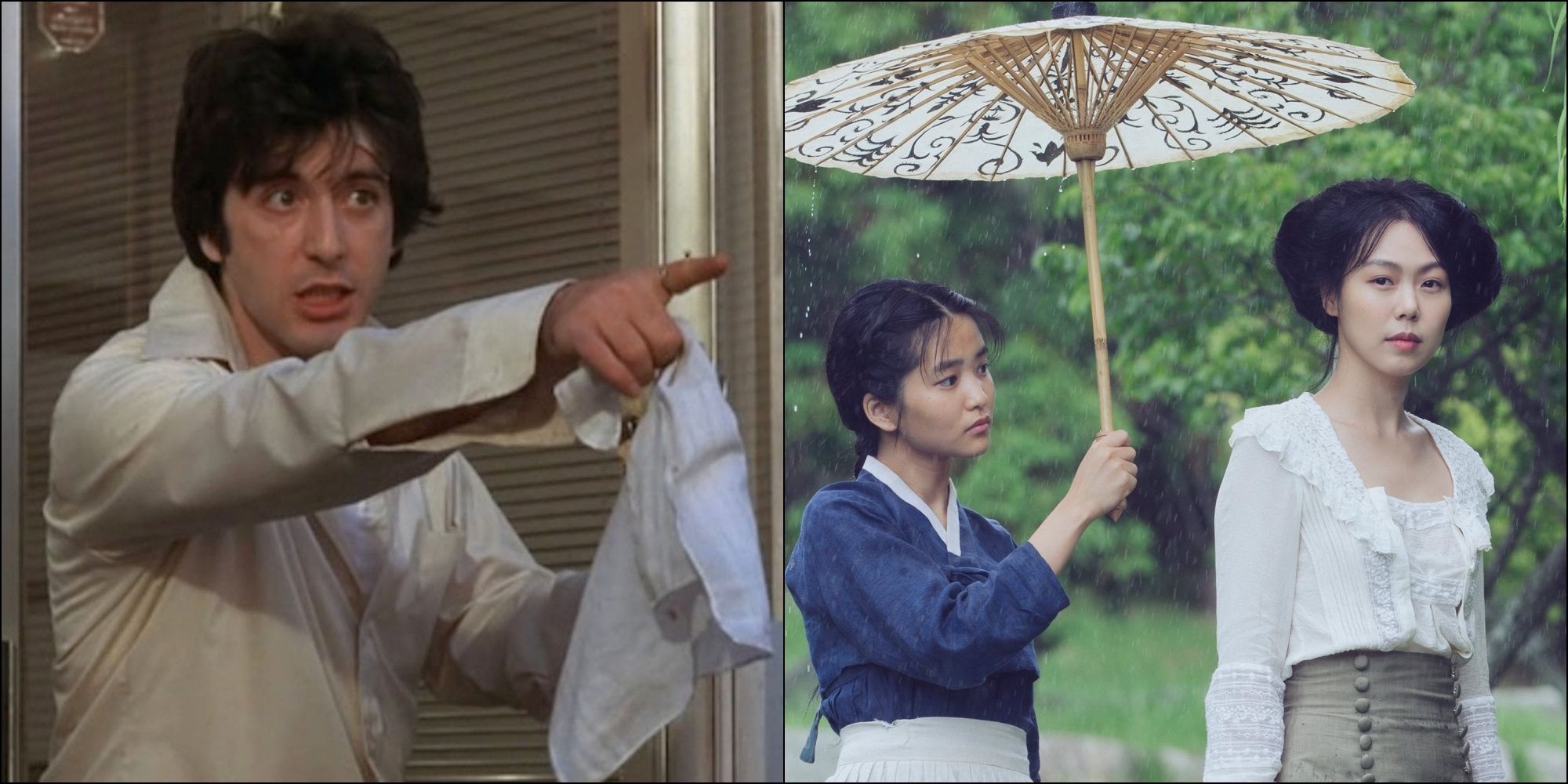
Related
10 Best LGBTQ+ Thrillers, Ranked By IMDb
If you’re looking for the best LGBTQ+ thrillers, here’s a good place to start, as these movies have lots of thrills while offering diverse characters.
The Handmaiden is often considered to be the ideal demonstration of how different elements of filmmaking can create the perfect movie. It features a uniquely immersive clash between score, setting, theme, and acting, as each of these aspects, individually brilliant, fight for the viewer’s attention. This creates a cacophony of suspenseful vibes that makes viewers hold their breath in anticipation. It always seems to be heading towards a confrontation, only to veer off into embellishing the narrative further. By the time the climax arrives, viewers will have given up on the guessing game, and the thriller has won.
Source link









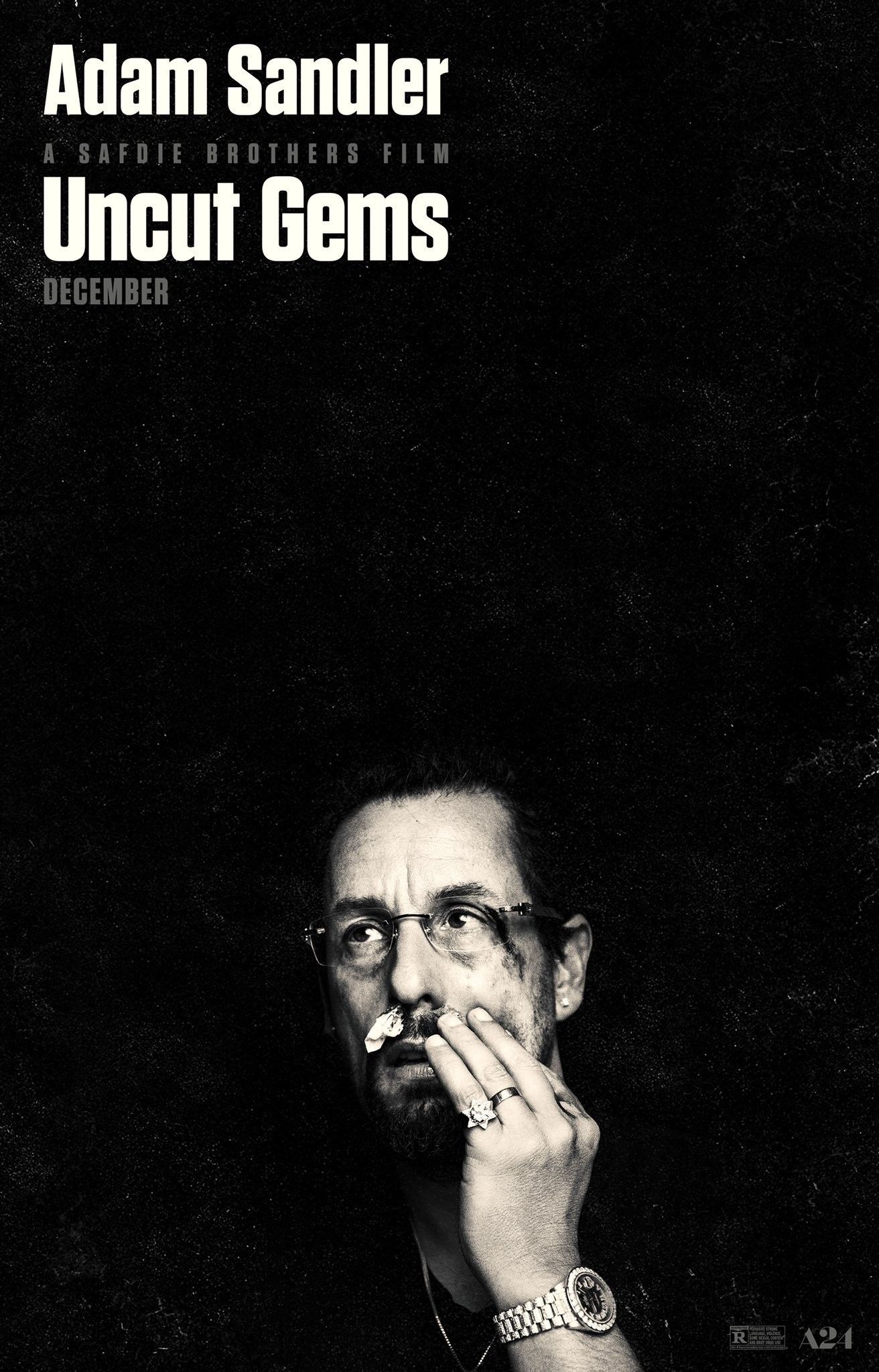
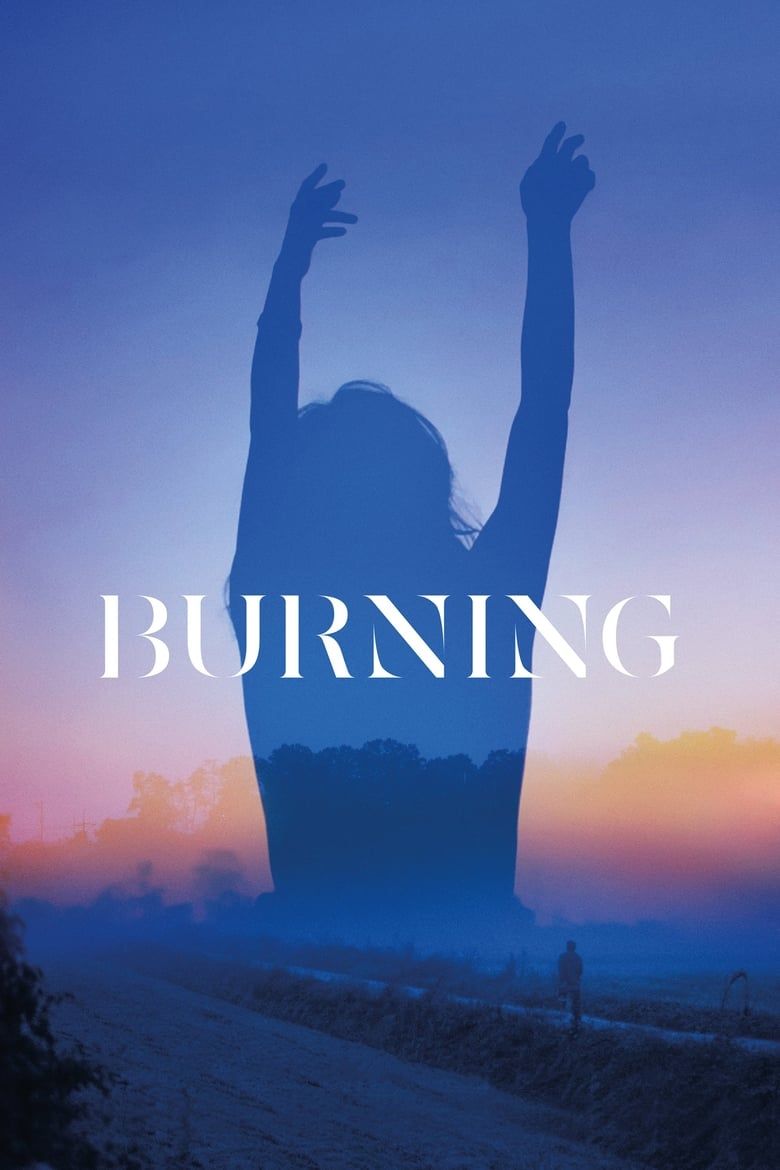
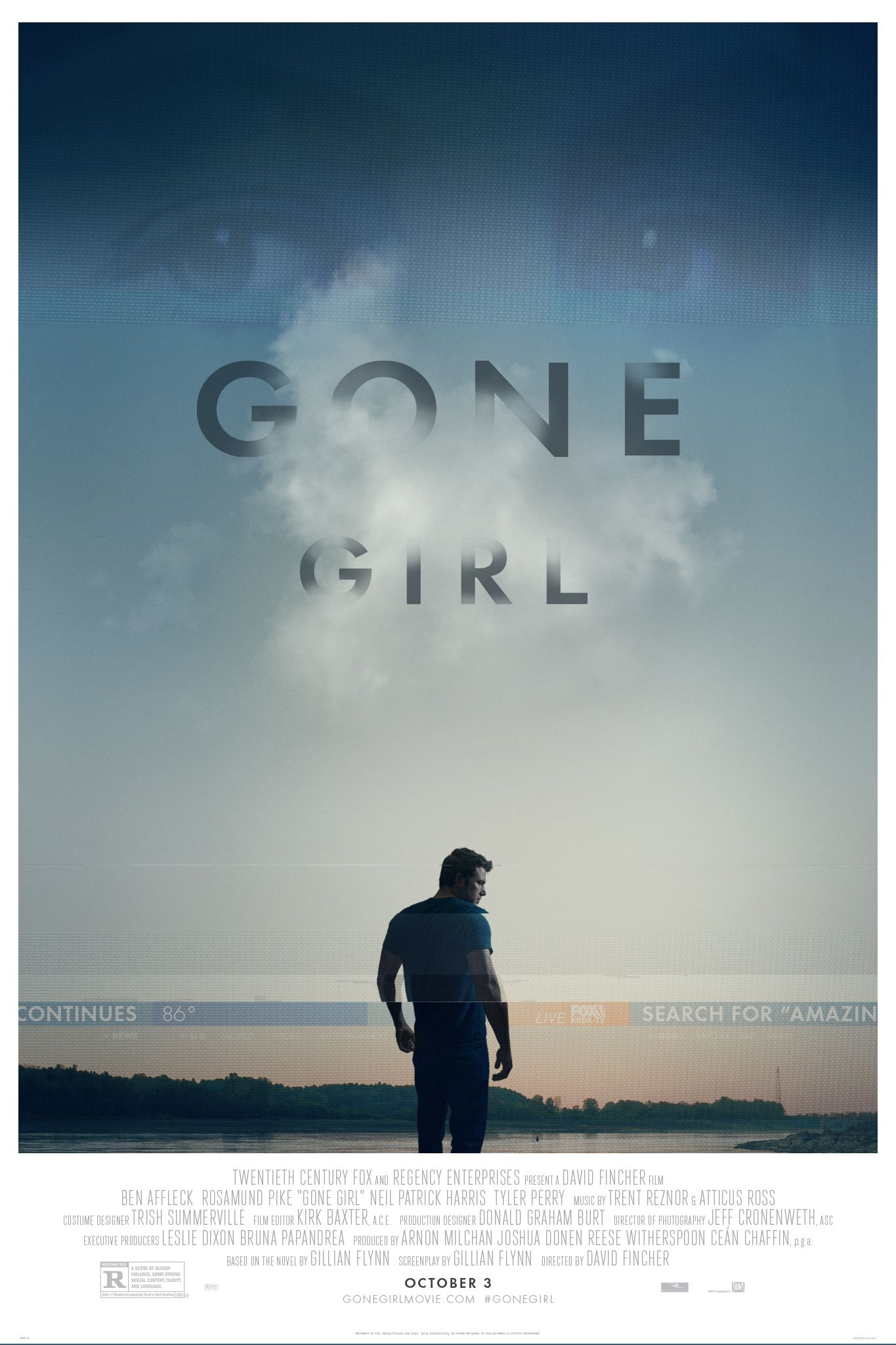
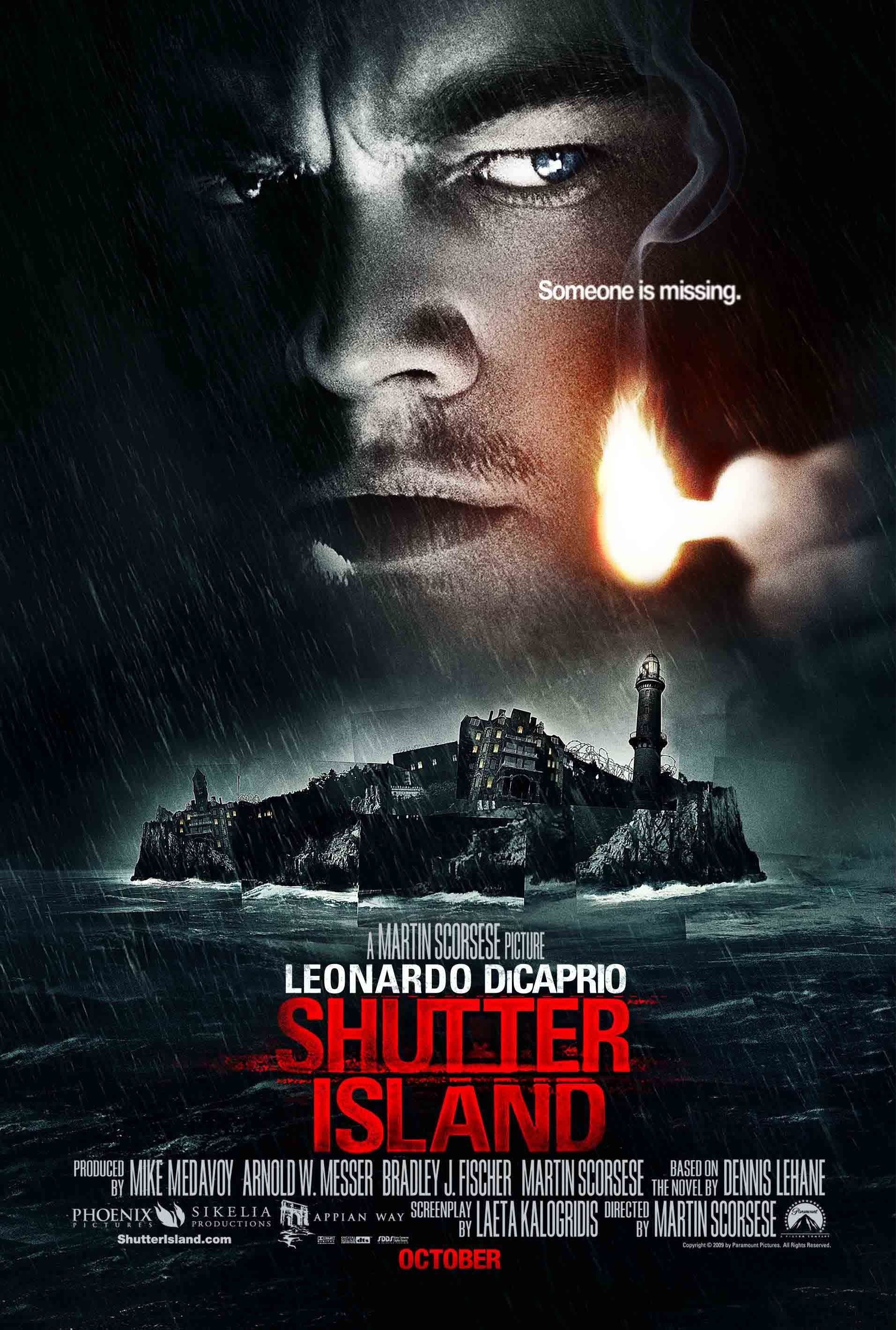
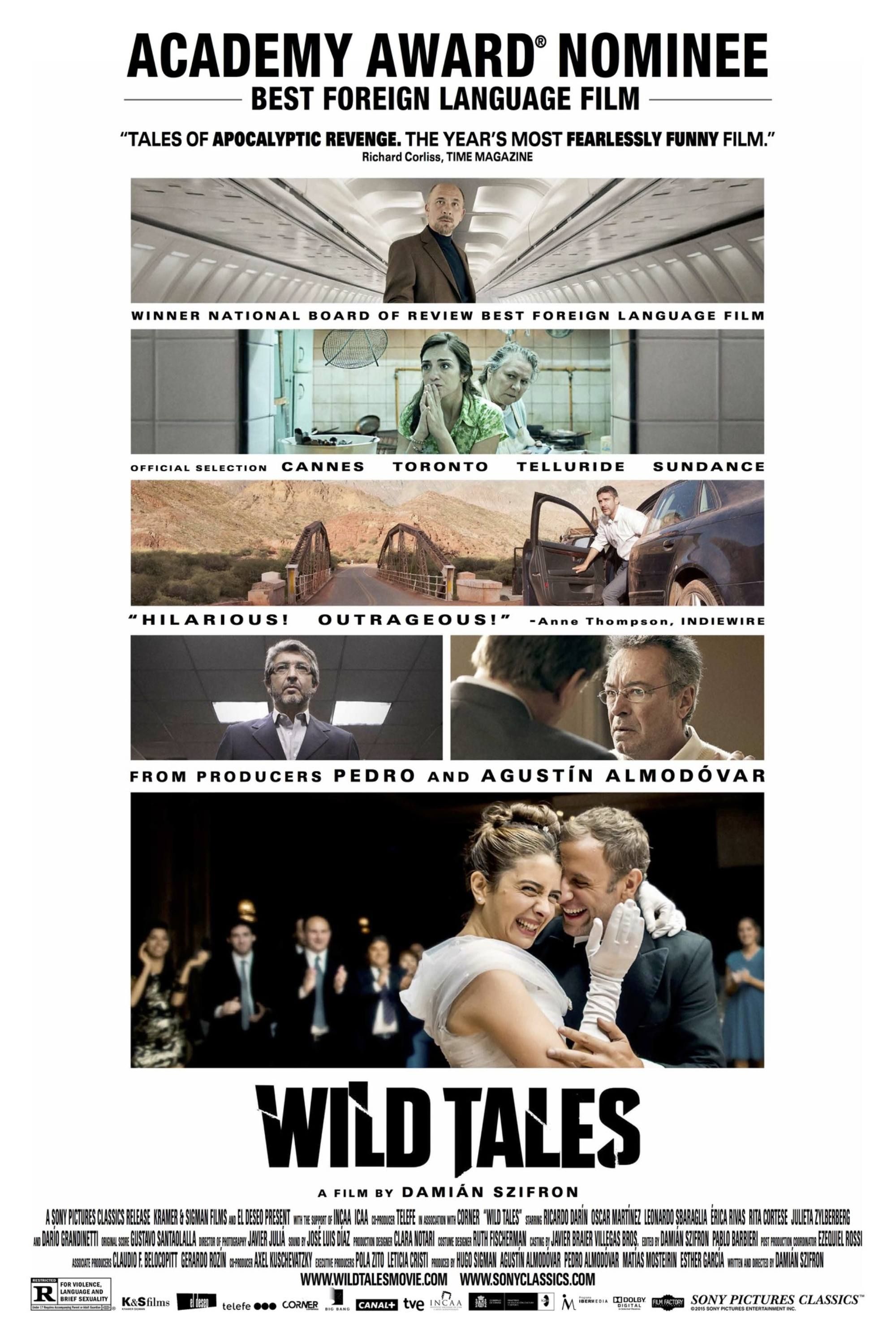
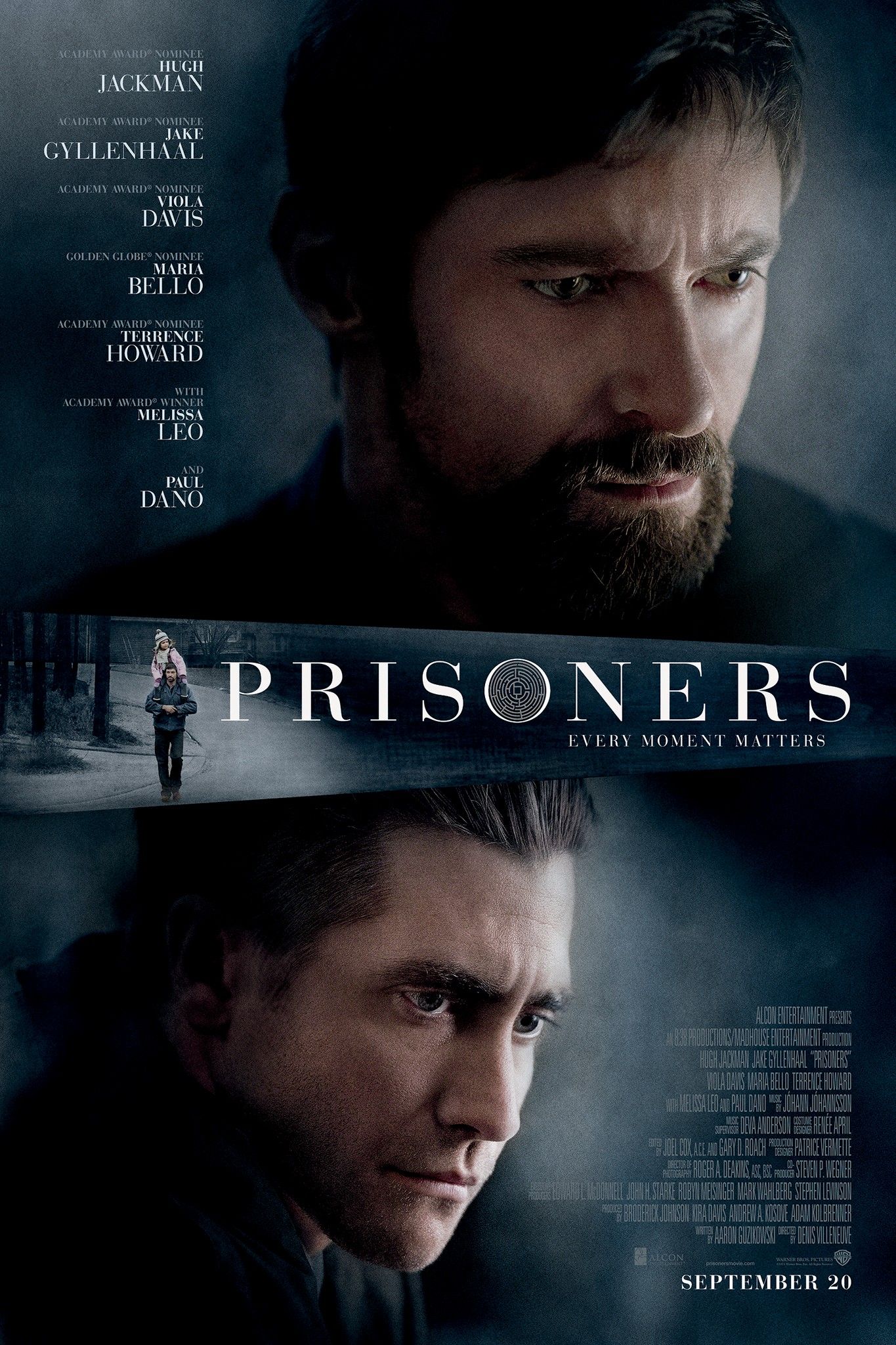
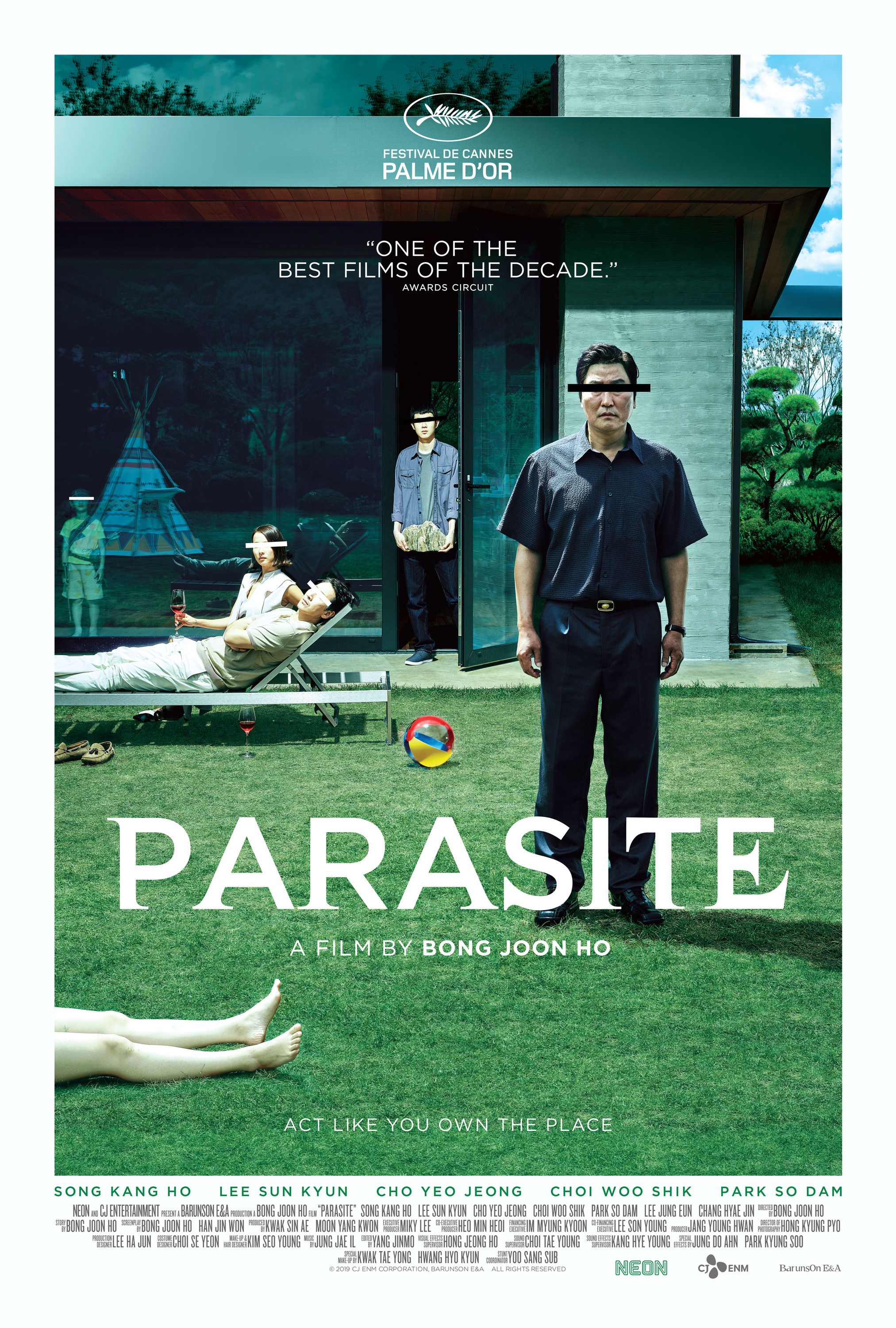








Add Comment